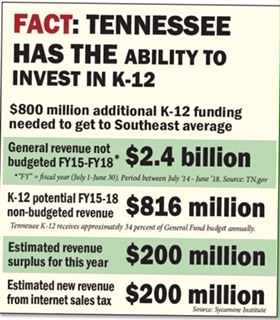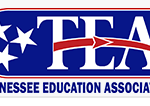Despite cancelling a planned rally to drum up support for improved school funding, the Tennessee Education Association is still calling for teachers and public education advocates to take action on or around March 16th. More from TEA President Beth Brown.
Following the announcement yesterday of our decision to cancel the TEA Rally for Our Schools, I want to challenge you to still mark Monday, March 16, as a Day of Action for the funding our schools deserve. Our public schools need a $1.2 billion investment from the state to provide the resources, services and support our students need to succeed.
It’s affordable: Tennessee can do this without raising taxes. It’s right: Strong public schools are the foundation of strong, thriving communities. It’s time: Underfunding our schools has gone on for too long; The students sitting in our classrooms right now, and the generations to come, deserve the very best education.
Monday, March 16, 2020, is a day we have all been looking forward to since the delegates at the TEA RA in 2019 voted unanimously that a large-scale action was needed to increase state funding. While we can no long risk a large in-person gathering, we still have the opportunity for a statewide, large-scale action.
I am asking each local association to identify a way for public education advocates in your community to show their support for increased state investment in public education. This can be anything from wearing red on Monday (including your Rally shirts, if you have them), to posting social media videos stating why your school deserves better funding, to a flood of phone calls to your state legislators. Better yet, you could do all three!
We must remain focused on this goal and not let the loss of the rally result in lost momentum. Elected officials in Nashville need to feel the pressure from folks back home that we are watching, and we expect better for Tennessee’s public schools.

For more on education politics and policy in Tennessee, follow @TNEdReport
Your support — $5 or more today — makes publishing education news possible.



